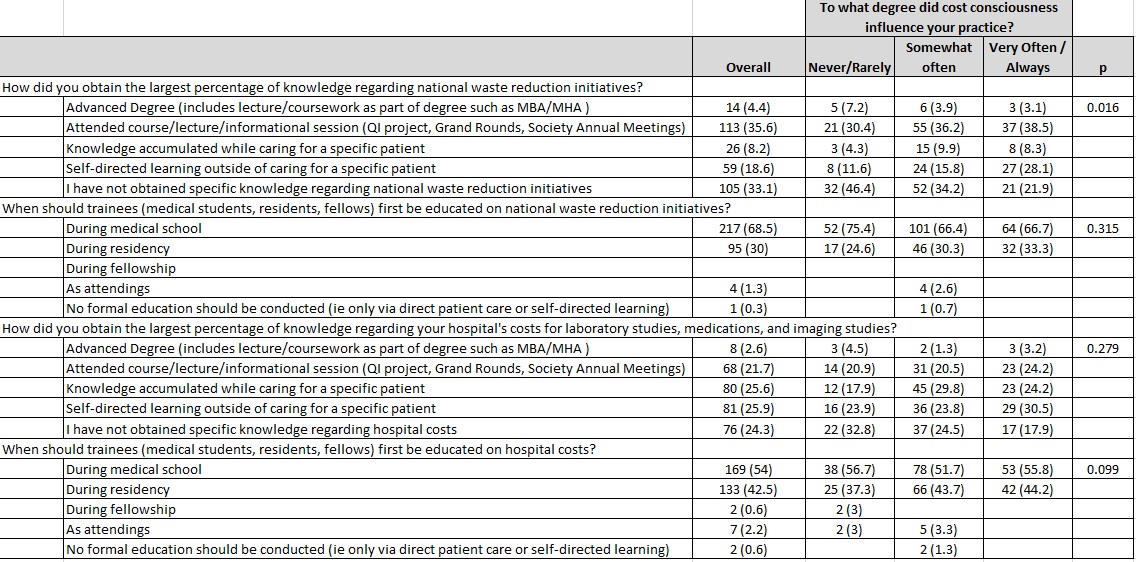Back
Health Services Research
Category: Abstract Submission
Health Services Research II
203 - Cost Consciousness and Accuracy Among Hospitalists at Children’s Hospitals in the United States
Sunday, April 24, 2022
3:30 PM – 6:00 PM US MT
Poster Number: 203
Publication Number: 203.320
Publication Number: 203.320
Benjamin Lee, University of Texas Southwestern Medical School, Dallas, TX, United States; Matthew Hall, Children's Hospital Association, Lenexa, Kansas, KS, United States; Ladan Agharokh, University of Texas Southwestern Medical School, Dallas, TX, United States; Andrew Yu, University of Texas Southwestern Medical School, Dallas, TX, United States; Kavita Parikh, Children's National Health System, Washington DC, DC, United States; Samir S. Shah, Journal of Hospital Medicine, Cincinnati, OH, United States

Benjamin Lee, MD
Associate Professor
University of Texas Southwestern Medical School
Dallas, Texas, United States
Presenting Author(s)
Background: In 2019, US hospital expenditures accounted for $1.2 trillion. The Institute of Medicine estimated that 30% of healthcare costs were waste. National medical waste initiatives aimed to reduce unnecessary tests in order to provide better care at lower costs. Despite initiatives to reduce waste and spending, there is a gap in provider knowledge regarding the cost of commonly ordered items. Current pediatric studies that exam cost consciousness or cost accuracy are at single institutions or at a few sites and involve specialties outside of hospital medicine. This is the first national survey of pediatric hospitalists on this topic.
Objective: We examined the relationship between pediatric hospitalists’ knowledge of national medical waste initiatives, self-reported level of cost-consciousness (the degree in which cost affects practice), and cost accuracy (how close a cost estimate is to the actual hospital cost of that item) at a national level.
Design/Methods: This cross-sectional study used a national, online survey sent to hospitalists at 49 children’s hospitals to assess self-reported cost consciousness and knowledge of cost estimates for commonly ordered laboratory studies, medications, and imaging studies. Actual unit costs for each hospital were obtained from the Pediatric Health Information System (PHIS); cost accuracy was calculated as the percent difference between each respondent’s estimate and actual unit costs.
Results: The faculty response rate was 17.7% (327/1850), representing 40 hospitals. Overall, 33.1% of respondents had no knowledge of national medical waste initiatives and 24.3% had no knowledge of local hospital costs. There was no significant relationship between cost accuracy and knowledge of national waste initiatives or high self-reported cost consciousness. Respondents overestimated the cost of all items with the largest percent difference with medications. Hospitalists practicing over 15 years had the highest cost accuracy.Conclusion(s): A large proportion of pediatric hospitalists lack knowledge on national medical waste initiatives and overestimate hospital costs. Cost consciousness in practice does not reflect knowledge of actual costs for laboratory studies, medications, or imaging. Hospitalists with high self-reported cost consciousness had the lowest cost accuracy compared to those with middle or low self-reported cost consciousness.
Self-Reported Knowledge of National Waste Reduction Initiatives and Hospital Costs Almost all hospitalists support the initiation of national medical waste initiatives and hospital costs during medical training, however, one-fourth to one-third do not have specific knowledge in those areas.
Almost all hospitalists support the initiation of national medical waste initiatives and hospital costs during medical training, however, one-fourth to one-third do not have specific knowledge in those areas.
Median [Inter-Quartile Range] Percent Difference and Years of Practice Hospitalists with 16+ years of practice were statistically more accurate with medication and imaging study costs than hospitalists with less than 16 years of practice.
Hospitalists with 16+ years of practice were statistically more accurate with medication and imaging study costs than hospitalists with less than 16 years of practice.
Objective: We examined the relationship between pediatric hospitalists’ knowledge of national medical waste initiatives, self-reported level of cost-consciousness (the degree in which cost affects practice), and cost accuracy (how close a cost estimate is to the actual hospital cost of that item) at a national level.
Design/Methods: This cross-sectional study used a national, online survey sent to hospitalists at 49 children’s hospitals to assess self-reported cost consciousness and knowledge of cost estimates for commonly ordered laboratory studies, medications, and imaging studies. Actual unit costs for each hospital were obtained from the Pediatric Health Information System (PHIS); cost accuracy was calculated as the percent difference between each respondent’s estimate and actual unit costs.
Results: The faculty response rate was 17.7% (327/1850), representing 40 hospitals. Overall, 33.1% of respondents had no knowledge of national medical waste initiatives and 24.3% had no knowledge of local hospital costs. There was no significant relationship between cost accuracy and knowledge of national waste initiatives or high self-reported cost consciousness. Respondents overestimated the cost of all items with the largest percent difference with medications. Hospitalists practicing over 15 years had the highest cost accuracy.Conclusion(s): A large proportion of pediatric hospitalists lack knowledge on national medical waste initiatives and overestimate hospital costs. Cost consciousness in practice does not reflect knowledge of actual costs for laboratory studies, medications, or imaging. Hospitalists with high self-reported cost consciousness had the lowest cost accuracy compared to those with middle or low self-reported cost consciousness.
Self-Reported Knowledge of National Waste Reduction Initiatives and Hospital Costs
 Almost all hospitalists support the initiation of national medical waste initiatives and hospital costs during medical training, however, one-fourth to one-third do not have specific knowledge in those areas.
Almost all hospitalists support the initiation of national medical waste initiatives and hospital costs during medical training, however, one-fourth to one-third do not have specific knowledge in those areas.Median [Inter-Quartile Range] Percent Difference and Years of Practice
 Hospitalists with 16+ years of practice were statistically more accurate with medication and imaging study costs than hospitalists with less than 16 years of practice.
Hospitalists with 16+ years of practice were statistically more accurate with medication and imaging study costs than hospitalists with less than 16 years of practice.